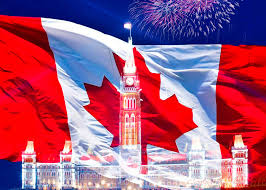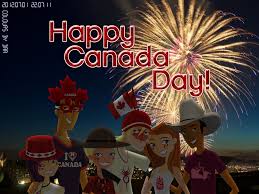Canada Day: Celebrating Unity and Heritage

Canada Day, observed on July 1st, is a national holiday that marks the anniversary of Confederation in 1867. On this historic day, the British North America Act came into effect, uniting three colonies—Ontario, Québec, New Brunswick, and Nova Scotia—into a single country called Canada within the British Empire. Let’s explore the origins, significance, and early observance of this patriotic celebration.
Origins and Legal Status
The British North America Act, which established Canada, took effect on July 1, 1867. Initially known as Dominion Day, this date became a focal point for celebrating Canadian identity. In June 1868, Governor General Charles Stanley Monck called for a nationwide celebration of the anniversary of Confederation. Although some communities organized festivities, the legal status of Dominion Day as a public holiday remained uncertain.
In 1879, a successful effort led by Senator Robert Carrall of British Columbia established Dominion Day as a statutory holiday. Over the years, there were attempts to change its name, but none succeeded until 1982. In that year, a private member’s bill proposed renaming it to Canada Day, emphasizing our unique national identity. The bill swiftly passed through the House of Commons and was ratified by the Senate in the fall.
Early Observance

During the first decade following Confederation, provinces like Ontario, Québec, and Nova Scotia observed Dominion Day as a de facto holiday. Local celebrations were organized at the municipal level and included a diverse array of activities:
- Bonfires: Communities gathered around bonfires, symbolizing unity and shared purpose.
- Picnics: Families enjoyed picnics in parks, celebrating their Canadian heritage.
- Sporting Events: Friendly competitions brought people together, fostering a sense of community.
- Parades and Pageants: Colorful parades and historical pageants showcased Canada’s past and aspirations.
- Fireworks: As evening fell, fireworks illuminated the skies, creating a sense of wonder and pride.
Newspaper editorials published on July 1st often discussed Canada’s history, its global standing, and prospects for the future. These reflections allowed communities to express their visions of Canadian identity while asserting their unique place within the country. In British Columbia, concerns about the treatment of individual provinces within Confederation were also voiced.
Canada Day provides an opportunity for all Canadians to come together, celebrate their nation’s birth, and reflect on its rich history and diverse heritage. So, on July 1st, let’s proudly wave the maple leaf flag, enjoy festivities, and honor the spirit of unity that defines our great nation! 🇨🇦¹²³
Feel free to explore more about Canada Day and share your thoughts! 😊🍁.